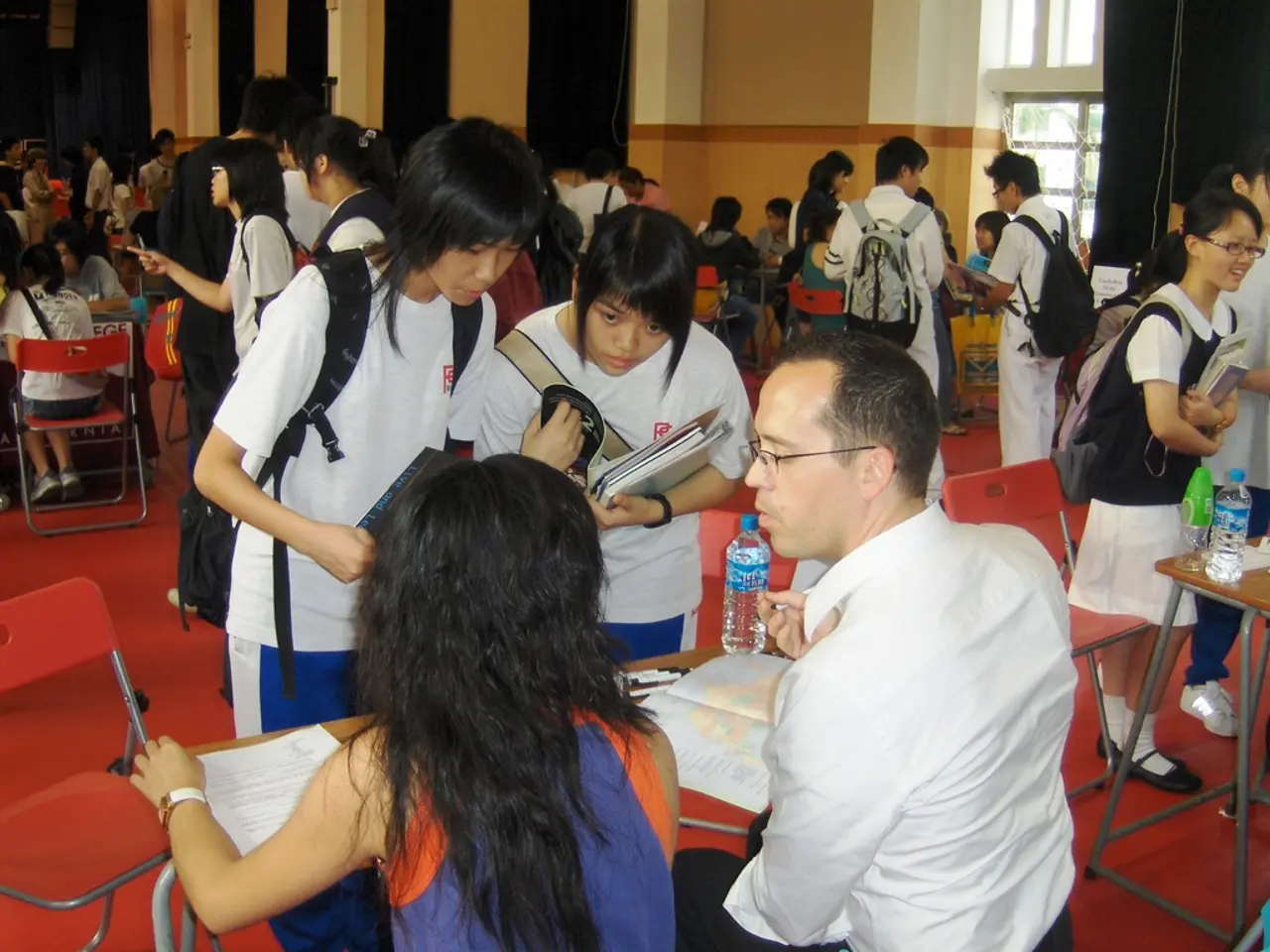Union advocates for diminishing educational coursework for educators
The German teachers' union, GEW, has proposed a five-point program to secure education during the pandemic, following criticisms from Ilka Hoffmann, a member of the GEW's school board, about the current protective measures in schools against the coronavirus.
The program includes several key demands. Consistent digitization of schools is high on the list, with the GEW calling for a greater emphasis on digital learning to reduce the need for physical interaction. Risk analyses for the workplaces in schools are also part of the GEW's demands, aiming to identify and mitigate potential risks.
Air filters for classrooms and the implementation of the ventilation concept of the Federal Environmental Agency are other important aspects of the GEW's program. These measures are intended to improve the overall air quality in schools, reducing the risk of airborne transmission of the virus.
The GEW has also referred to the recommendations of the Robert Koch Institute (RKI) to consistently switch to shift teaching when the incidence value of 50 new infections per 100,000 inhabitants in a week is exceeded. This measure is designed to limit the number of people in schools at any given time, reducing the potential for transmission.
Detailed statistics on quarantine orders at schools are to facilitate decisions on protective measures on site. This transparency is intended to help schools make informed decisions about the measures they need to implement to protect their students, teachers, and parents.
However, the GEW's program does not mention the urgent reduction of pressure on students and teachers, a point that Hoffmann has emphasized. She has stated that the pressure on students and teachers needs to be urgently reduced, particularly during these challenging times.
Hoffmann has also called for a reduction in teaching content and distance from exams and tests. She argues that this would help to alleviate the pressure on students and teachers, allowing them to focus on the most essential aspects of education.
Wearing masks in certain situations is not a wrong solution, according to Hoffmann, but only as a secondary protective measure. She believes that reducing teaching content and distance from exams and tests would be more effective in protecting both students and teachers.
The increasing number of schools that have to be closed and the growing number of infected or quarantined children, young people, and teachers show the inadequacy of the current measures, according to Hoffmann. She has criticized the current protective measures as "too short-sighted."
The GEW union in Berlin has also demanded more consistent mask requirements, improved ventilation, regular rapid testing, and better protection measures for school staff to enhance COVID-19 safety in schools. Relief needs to be created before considering extending the winter holidays, according to Hoffmann. She has stated that the overall societal consequences of longer winter holidays must be considered.
In conclusion, the GEW's five-point program aims to enhance COVID-19 safety in schools by focusing on digitization, risk analysis, air quality, shift teaching, and transparency. However, the urgent reduction of pressure on students and teachers and the consideration of the overall societal consequences of longer winter holidays are issues that still need to be addressed.
Read also:
- Peptide YY (PYY): Exploring its Role in Appetite Suppression, Intestinal Health, and Cognitive Links
- Toddler Health: Rotavirus Signs, Origins, and Potential Complications
- Digestive issues and heart discomfort: Root causes and associated health conditions
- House Infernos: Deadly Hazards Surpassing the Flames








